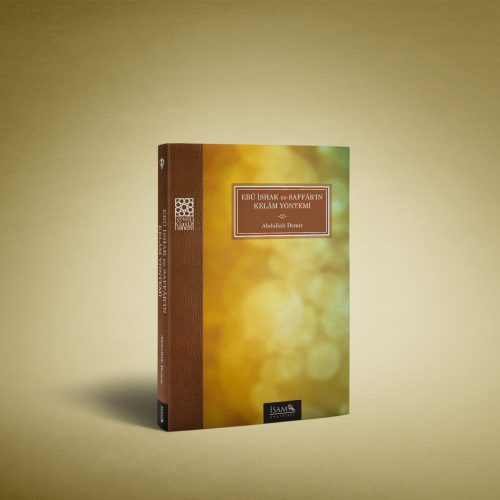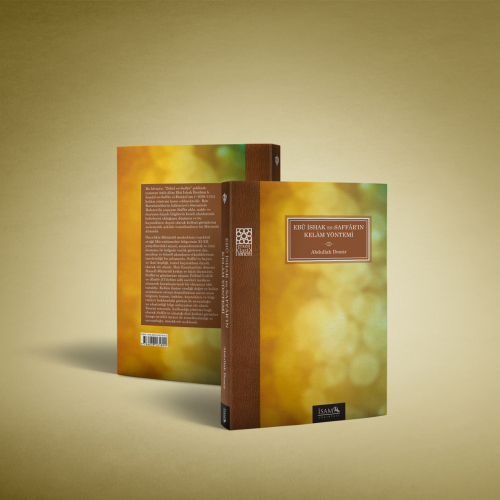Ebû İshak es-Saffâr’ın Kelâm Yöntemi
In this book, the famous scholar Abu Ishaq Ibrahim b. Ismail as-Saffār al-Buhari (1058 – 1141) known as “Zāhid as-Saffār”s kalam method has been explicated. Living in Bukhara under the dominance of West Karakhanids Saffār is a Maturid scholar who systematically establishes his ideas about kalam believing that information based upon reason, revealed knowledge and senses are determinative in his area.
In this work, primarily political, socio-economical, scholarly conditions and religious, doctrinal and philosophical activities of Transaxonia area in 11th and 12th centuries, where Māṭurīdī doctrine was formed, is examined.
In addition, Abū Ishaq as-Saffār’s kalam method is treated considering the Saffār’s life, scholarly persona and primary sources. Hanafid-Maturid kalam and fıqh literature of West Karakhanids era compared focusing on the Saffār’s works of Telhīs al-Adilla and Risāle fi al-Kalam. After presenting his attribution of significance to kalam and his defence of kalam, his views on definition of knowledge, potential of knowledge, sources of knowledge and types of knowledge discussed including his critics and defence on different concepts of knowledge. In the end of the work, Saffār’s conclusions on religion-kalam explained with examples, considering how he used the types of deductions to justify the outcomes.
Click to buy.

